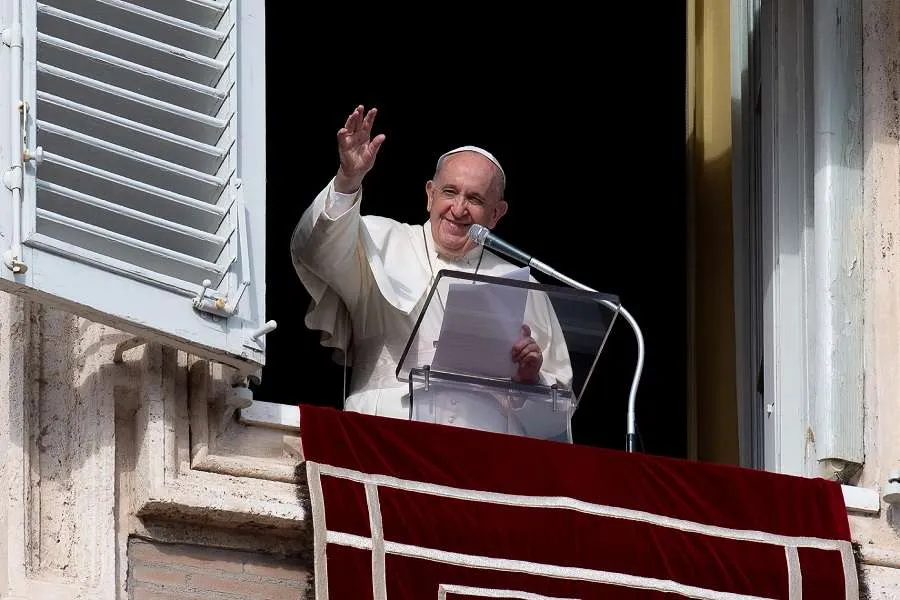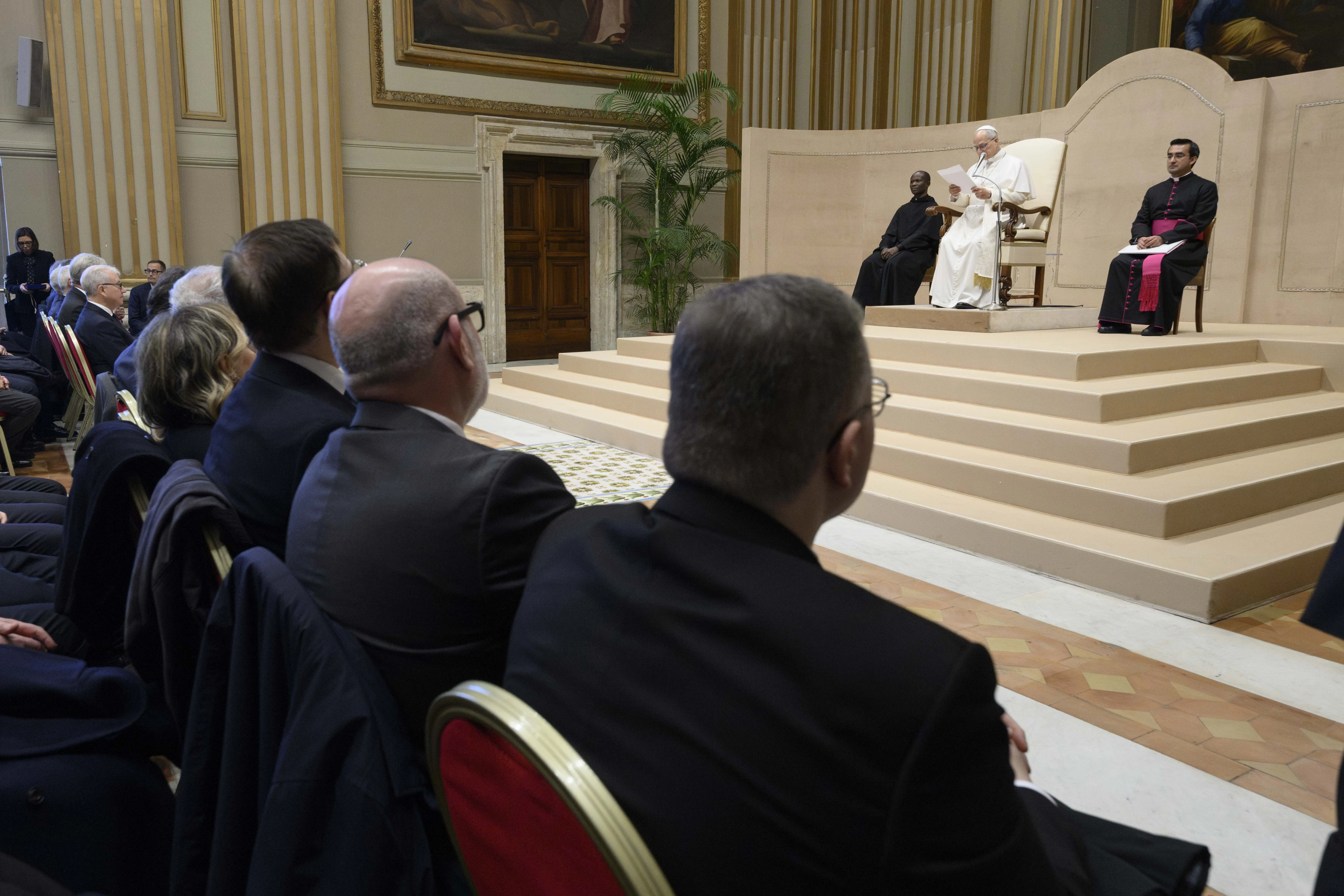“At the last judgment, the Lord will judge us on the choices we have made,” Francis said. “He only draws out the consequences of our choices, brings them to light and respects them. Life, we come to see, is a time for making robust, decisive, eternal choices.”
According to the pope, we become what we choose: thus, “if we choose to steal, we become thieves. If we choose to think of ourselves, we become self-centered. If we choose to hate, we become angry. If we choose to spend hours on a cell phone, we become addicted.”
“Yet if we choose God,” he continued, “daily we grow in his love, and if we choose to love others, we find true happiness. Because the beauty of our choices depends on love.”
“Jesus knows that if we are self-absorbed and indifferent, we remain paralyzed, but if we give ourselves to others, we become free. The Lord of life wants us to be full of life, and he tells us the secret of life: we come to possess it only by giving it away,” he emphasized.
Francis also spoke about the corporal works of mercy, as described by Jesus in the Gospel.
“If you are dreaming about real glory, not the glory of this passing world but the glory of God, this is the path to follow,” he said. “Read today’s Gospel passage, reflect on it. For the works of mercy give glory to God more than anything else.”
He also encouraged people to ask themselves if they put these works into practice. “Do I do anything for someone in need? Or do I do good only for my loved ones and my friends? Do I help someone who cannot give anything back to me? Am I the friend of a poor person? ‘There I am,’ Jesus says to you, ‘I am waiting for you there, where you least think and perhaps may not even want to look: there, in the poor.’”
After Mass, Pope Francis gave his Sunday Angelus address from a window overlooking St. Peter’s Square. He reflected on the day’s feast of Christ the King, which marks the end of the liturgical year.
“He is the Alpha and the Omega, the beginning and the fulfillment of history; and today’s liturgy focuses on the ‘omega,’ that is, on the final goal,” he said.
The pope explained that in St. Matthew’s Gospel, Jesus gives his speech on universal judgment at the end of his own earthly life: “He whom men are about to condemn, is in reality the supreme judge.”
“In his death and resurrection, Jesus will show himself as the Lord of history, the King of the universe, the Judge of all,” he said.








